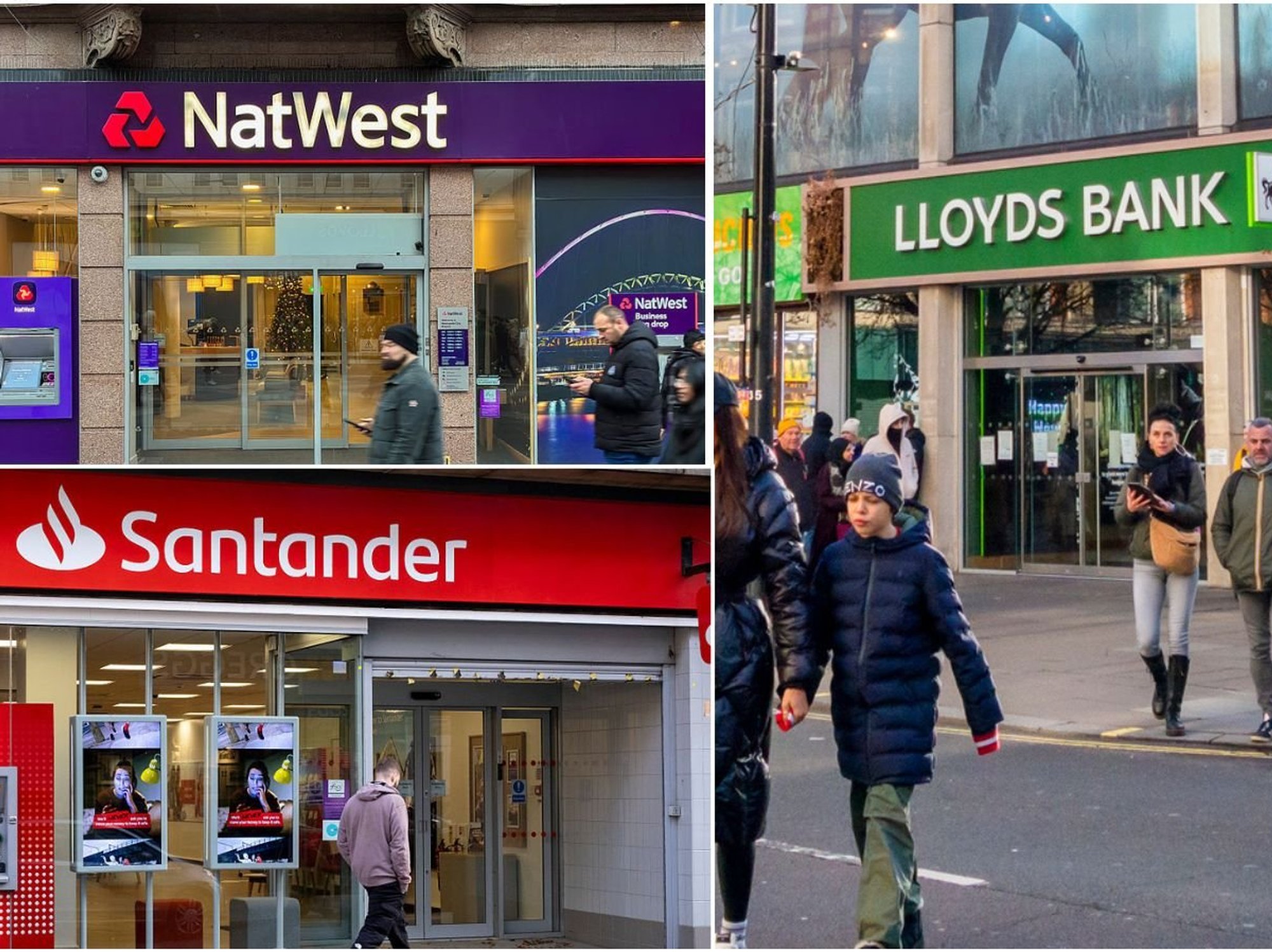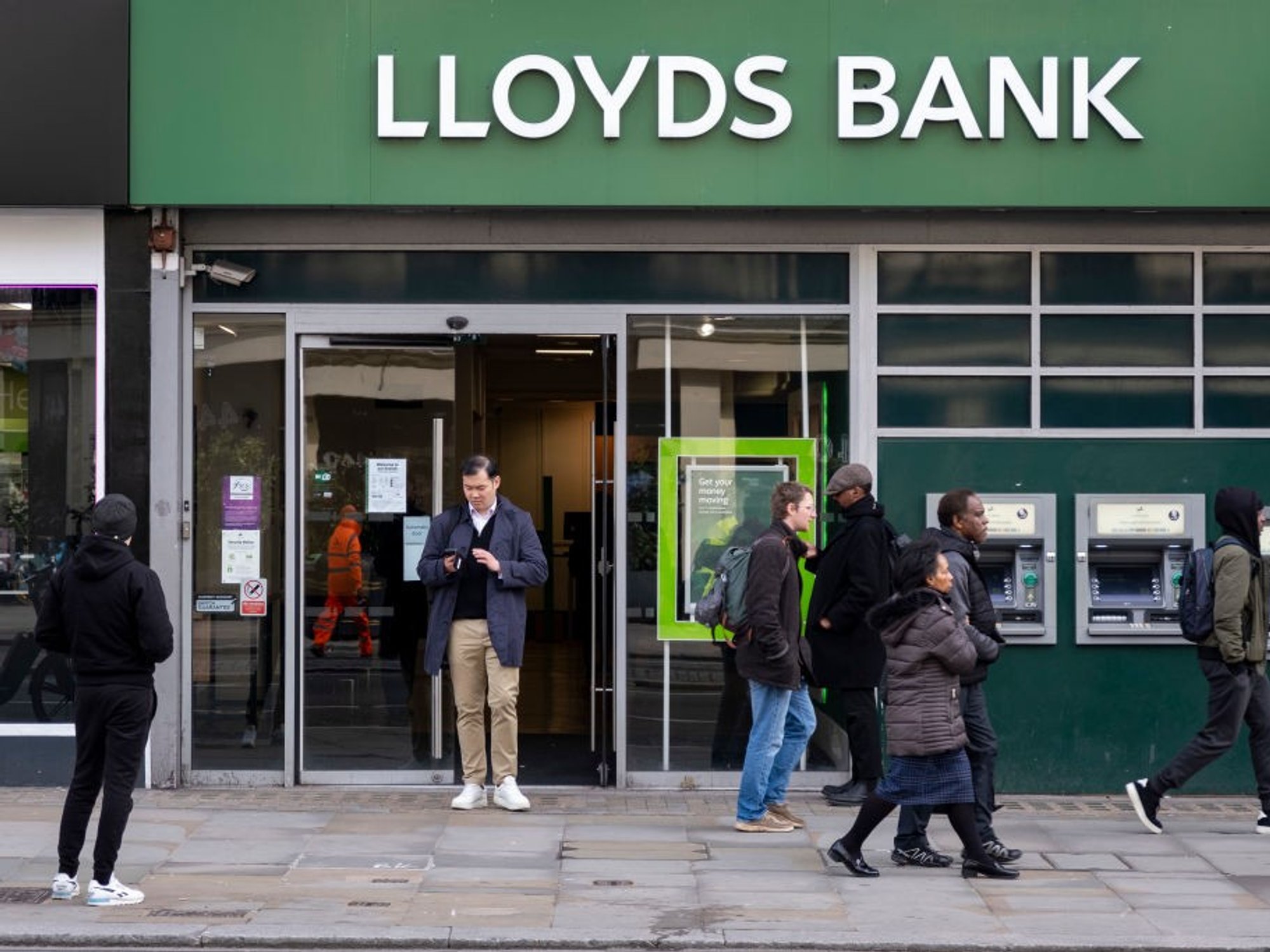Black Friday shoppers set to spend £14 billion on discounted goods this weekend amid scam warnings

How can savers best protect themselves from scams? |
GB News

Research shows strong spending intentions as experts warn of deceptive online deals
Don't Miss
Most Read
British consumers are expected to spend nearly £14 billion over this year’s Black Friday weekend, a rise of £4 billion compared with 2024, new research suggests.
The sharp increase comes despite growing public concern over fraudulent offers and misleading discounts during the annual shopping event.
Data from e-commerce marketing firm Omnisend shows that many consumers have delayed major purchases in anticipation of the late November sales.
Shoppers are also using the period to start Christmas gift buying earlier than usual.
TRENDING
Stories
Videos
Your Say
The research found that about one-third of consumers plan to spend more than they did last year, while only 14 per cent intend to cut back.
The figures point to solid consumer confidence despite wider economic pressures.
Amazon remains the most popular shopping destination, with 76 per cent of bargain hunters planning to use the platform.
However, Chinese marketplaces are gaining ground rapidly among UK shoppers.
Temu has drawn interest from 22 per cent of consumers, while fashion site Shein appeals to 21 per cent.
Social platform TikTok Shop is expected to attract 14 per cent of shoppers, reflecting the growing role of social media in retail.

British consumers are expected to spend nearly £14billion over this year’s Black Friday weekend
|GETTY
The average shopper expects to spend £299 on Black Friday itself, up £83 from 2024. Cyber Monday spending is also set to rise, reaching £229 on average, an increase of £70 on last year.
Fashion and accessories remain the most sought-after items, with 49 per cent of consumers planning clothing purchases.
Technology follows closely at 45 per cent, while 28 per cent of shoppers will focus on toys in preparation for Christmas. However, interest in buy now, pay later schemes is declining.
Only 17 per cent of consumers say they will use services such as Klarna or PayPal this year, rising to 32 per cent for higher-value purchases. The trend suggests shoppers are growing more cautious about taking on debt.
How do I know if it's too good to be true?
The offer may arrive via email or appear on social media, often posted from a newly created account.
Consumer group Which? warns that unrealistically low prices, inconsistent with other sites, should be an early red flag.
Clicking through may lead to a poorly developed website. It might lack a privacy policy, postal address or “about us” page.
Instead of requesting payment by credit or debit card, the site may ask for a bank transfer — the preferred method used by organised crime gangs.
Sites that demand cryptocurrency payments should also raise alarm bells.
Fraudulent websites may use impersonated URLs.
“Scammers will turn John Lewis into J0hn Lewis (with a zero) … to trick rushed consumers,” said Nathaniel Jones of Darktrace.
There is often a sense of urgency, the site may claim you have only minutes to secure the deal, or that stock is limited and immediate action is required.
New and used tech items such as mobile phones, laptops, smartwatches, and tablets are frequently advertised with attractive deals that turn out to be fake.
LATEST DEVELOPMENTS

The average shopper expects to spend £299 on Black Friday itself, up £83 from 2024
|GETTY
Separate studies indicate that 71 per cent of consumers plan to reduce overall Christmas spending, making Black Friday a key opportunity for retailers to capture sales before tighter budgets take effect. Consumer protection groups are warning of increased fraud risks during the sales weekend.
Citizens Advice consumer expert Jane Parsons said: "Black Friday is a prime opportunity for cyber scammers to take advantage of consumers looking to bag a bargain."
She warned that criminals often use convincing tactics to deceive shoppers.
"By tempting people with special offers, fake reviews and sought-after items at rock bottom prices, criminals will try to catch people out by disguising their scams as legitimate deals," Ms Parsons said.
She added that scammers frequently create a false sense of urgency to pressure consumers. "They will often create a sense of urgency to steal your money so don't rush your purchase.
Research the company you're buying from and be wary of suspicious web links. Paying by debit or credit card can also give you extra protection if things go wrong." Which? consumer law expert Lisa Webb offered further advice for staying safe.
"Shoppers should be extra cautious with Black Friday deal emails and double check the email address is genuinely from the retailer before clicking on anything.
If you are unsure if an offer is genuine, check the retailer's website directly," she said.

Victims of scams are urged to contact Action Fraud
|GETTY
The Consumer Law expert also urged caution when using social media.
She advised: "Treat any deals posted from newly created accounts with suspicion. You can use a domain checker like who.is to check when the website was created — any newly created website should ring alarm bells."
For those who believe they have been targeted, Ms Webb said swift action is crucial.
"If you think you might have fallen victim to a Black Friday scam, call your bank immediately using the number on the back of your bank card and report it to Action Fraud or call the police on 101 if you're in Scotland."
Our Standards: The GB News Editorial Charter
More From GB News










